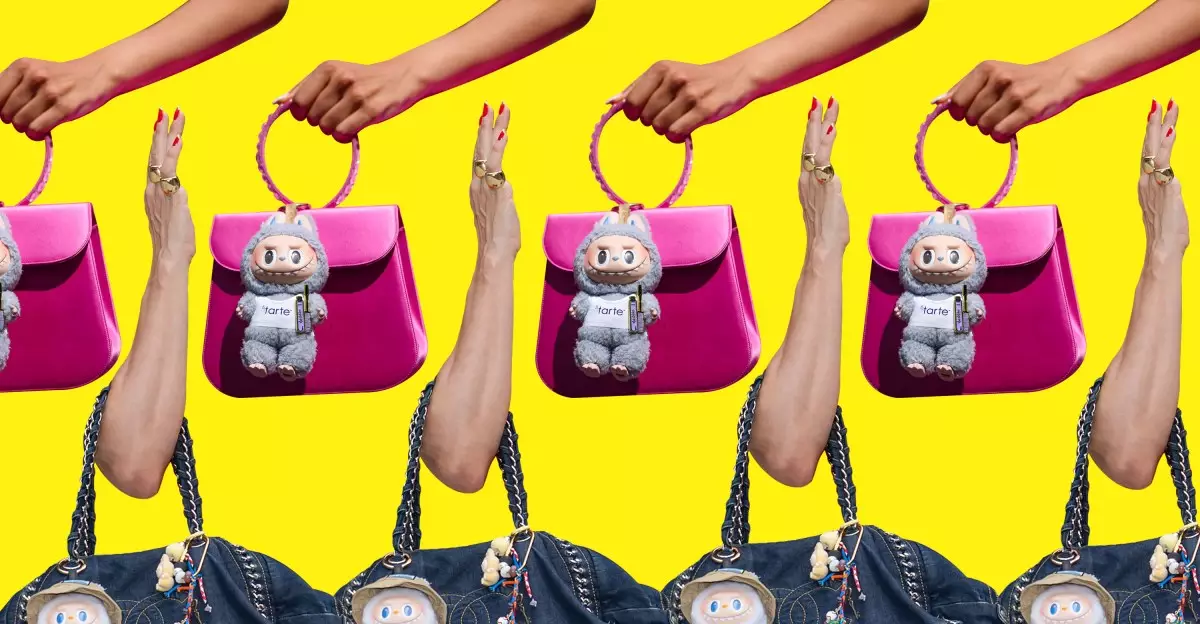In an era where online shopping is often synonymous with ease and instant gratification, the universe of collectibles has become an intriguing paradox. Take Labubu, the adorable figurines crafted by Pop Mart, which exemplify this contradiction perfectly. The act of acquiring one is no longer a simple click but a gauntlet that tests patience, strategy, and even a bit of luck. The quest for Labubu is emblematic of a larger cultural shift—where the thrill of the hunt takes precedence over the object itself. This phenomenon reflects a collective desire to find meaning in the process, rather than just the end result. The digital landscape has transformed what was once a straightforward transaction into a chaotic game, with storefronts resembling battlegrounds and the window of opportunity fleeting and unforgiving.
What makes this process particularly captivating is the deliberate chaos Pop Mart has engineered. Through limited stock, random releases, and clever app mechanics, it transforms purchasing into a high-stakes game of timing and agility. Unlike traditional shopping, where speed often equates to success, here even the fastest can be blocked by an algorithm or a flood of competitors. This environment fosters a sense of community among collectors, who convene on forums and livestreams to share tips and strategies. Yet, beneath the social camaraderie lies a darker truth: this manufactured scarcity and complexity breed addictive behaviors akin to gambling. It’s not just about owning a cute toy; it’s about conquering an obstacle course of digital hurdles.
The Illusion of Control and the Power of Luck
The frustration and exhilaration embedded in the Labubu acquisition process highlight modern society’s paradoxical relationship with control and chance. Despite meticulous research and strategic tapping, success often hinges on luck—the precise moment a virtual box reopens, or a fleeting window of availability. The experience resembles a digital casino, where the allure lies in the uncertainty, and victory is as much a matter of timing as skill. Influencers and hobbyists have turned this frenzy into entertainment, documenting their attempts and sharing hacks to beat the system. Yet, for most, it remains an unpredictable game that demands patience, perseverance, and hours of relentless effort.
The act of “winning” a Labubu—finally securing a rare or desired color—becomes a personal victory over the chaos, a badge of honor earned through resilience. Conversely, the many failed attempts and countless error messages emphasize the frustrating randomness at play. The community’s collective knowledge, such as turning Wi-Fi on/off or timing taps precisely, provides a veneer of mastery. Still, the core truth remains: this is a lottery with a digital twist, where the prize is more about the story of the chase than the figurine itself.
The Mythology of the Unboxing: Symbolism Beyond the Toy
Once the physical Labubu arrives, the story does not end. In fact, the unboxing often becomes the most anticipated part, a moment of revelation that transforms the collector’s experience into performance art. The surprise element—what color, what rarity—is akin to opening a treasure chest filled with anticipation and hope. The thrill is heightened by social media, where unboxing videos generate millions of views, feeding the cycle of obsession. Interestingly, this ritual echoes gambling behaviors; the suspense, the stakes, and the obsessive pursuit of the rare are all elements rooted in chance.
The real value of Labubu, beyond their visual appeal, resides in the journey—the painstaking process of acquiring them and the stories amassed through countless attempts. For serious collectors, flipping the toys is often not profitable unless dealing with unopened or rare variants. The marketplace is flooded with imitations, diluting value and making authenticity the holy grail. In this landscape, the toy becomes a symbol of effort, dedication, and sometimes, obsession. It points to a cultural dinner table where the act of pursuit is celebrated more than possession itself.
A Cultural Reflection: Why We Chase and How It Defines Us
The proliferation of Labubu hype underscores a fundamental human trait—the allure of difficult achievements. It’s a reflection of a society that increasingly values effort and persistence over straightforward success. The virtual chaos that accompanies Labubu drops is more than a marketing gimmick; it’s a mirror to our collective psyche, revealing our desire for challenge and the satisfaction of overcoming it. Whether it’s the latest toy, sneakers, limited-edition sneakers, or other collectibles, our identities are tied to these pursuits. They offer a sense of belonging, a shared experience of privilege in victory, and collective frustration in defeat.
Google Trends shows rising interest, signaling that this phenomenon resonates widely. The endless loops of livestreams, automated bots, and viral videos ensure that the hype persists. But perhaps the true allure isn’t the figurines at all—it’s the narrative of perseverance, the cultural validation of effort over ease. The day when collecting becomes too effortless, when the toy is just a toy, might mark the end of this particular craze. Until then, the chaos continues, and for collectors and enthusiasts alike, the game remains irresistibly addictive.

